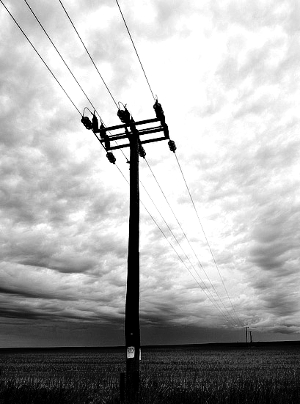Green link funded
 A new project is set to link renewable energy generation and storage in regional New South Wales to the national electricity grid.
A new project is set to link renewable energy generation and storage in regional New South Wales to the national electricity grid.
The Federal Government has approved the Central-West Orana Renewable Energy Zone (REZ) transmission project, which promises to provide power to 1.8 million homes with at least 4.5 gigawatts of new network capacity.
The project - backed by $490 million in funding from the Rewiring the Nation Fund - is slated to begin construction later this year, including 240 kilometres of transmission lines and related infrastructure.
Once completed, it will connect multiple major renewable energy projects to the grid by 2028.
The proponents say the project could facilitate up to $20 billion in private investment into the solar, wind, and energy storage sectors, while supporting around 5,000 jobs at the peak of construction.
The Central-West Orana REZ spans approximately 20,000 square kilometres and includes towns such as Dubbo, Dunedoo, and Mudgee.
Governments hope the region will become a hub for renewable energy, attracting substantial investment and contributing to the transition away from coal-fired power.
However, the rollout of renewable energy infrastructure has not been without challenges, particularly concerning land use.
To address these concerns, a memorandum of understanding (MOU) has been signed between NSW Farmers, EnergyCo (the statutory authority), and the future network operator.
This MOU aims to enhance communication with local landholders and establish a code of conduct for property access, reflecting a collaborative approach to integrating renewable energy projects within agricultural landscapes.
EnergyCo’s CEO, James Hay, says farmers will play a “strong and constructive role” in the development of renewable energy zones across New South Wales.
The MOU is expected to serve as a model for future projects, helping to mitigate potential conflicts and support the dual goals of renewable energy expansion and agricultural preservation.
The rapid development of transmission infrastructure is critical to Australia's clean power transition.
Experts warn that delays in such projects could lead to the extension of the operational life of coal-fired power plants.








 Print
Print